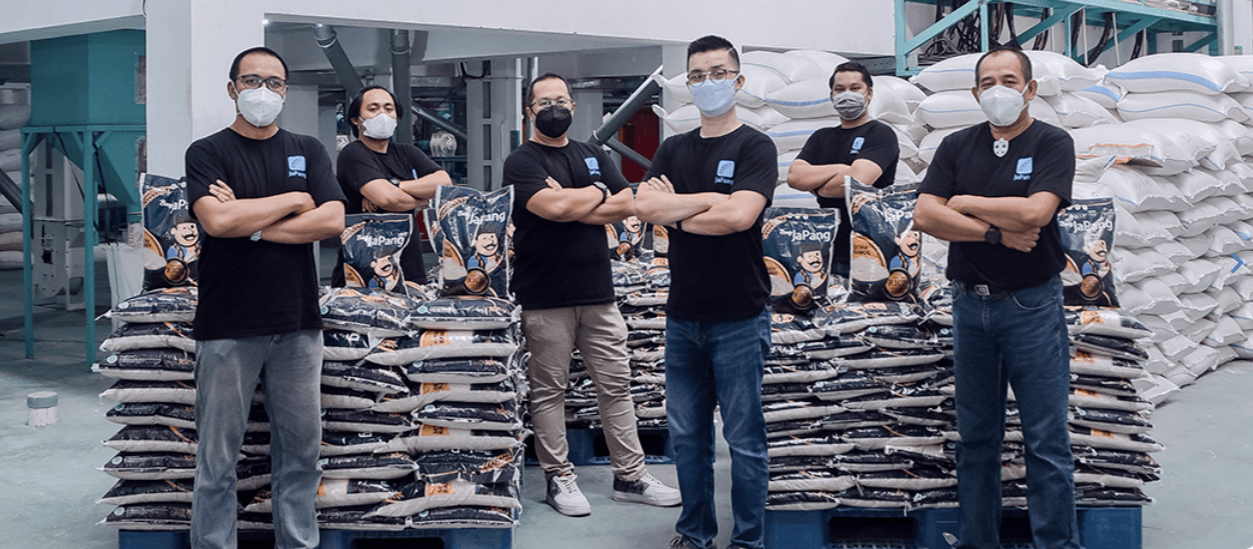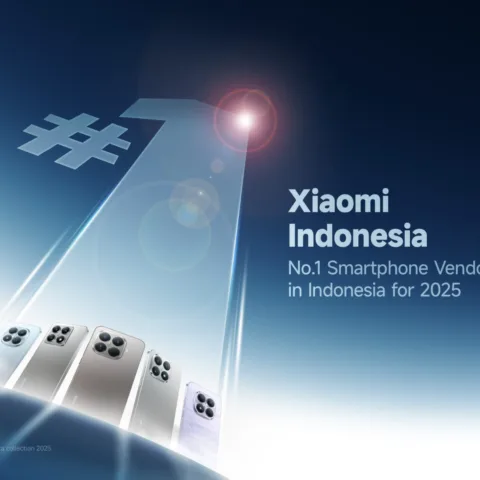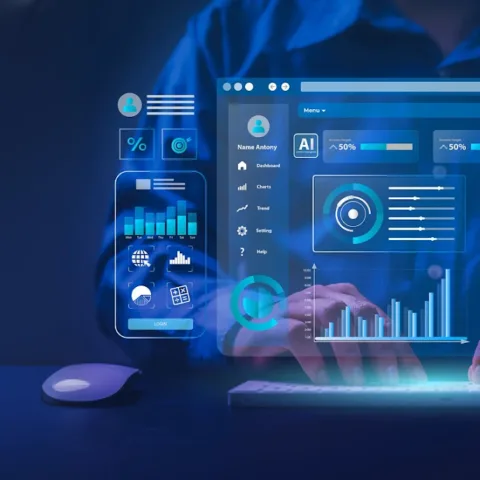Last Wednesday, (12/8), was celebrated as the 2020 National UMKM Day. Several virtual events entitled empowering small businesses were held by various organizers, both public and private. Apart from these symbolic aspects, Indonesian SMEs deserve the attention of various parties. This sector offers agile solutions in driving the national economy. Involving various components of society at large.
The number of SME players has consistently increased by the year. According to BPS data, there have been 64.2 million business units since 2018. They provide around 60.3% contribution to gross domestic product (GDP) and absorb 97% of the national workforce. Kemenkop data shows, the government is targeting at least 2 million SMEs to go digital this year. As of August 2020, the number is still around 1.4 million, around 2% of the total.
Embracing SME digitization
There are many programs held by various parties for SMEs to finalize digital strategies, including the government and the private sector. Digitization is clearly not just jargon, it allows SMEs to strengthen the foundations of business. The goal is very clear, expand business prospects and open new market share.
Digitization alone isn’t just about selling products online. More than that, there are many aspects to be optimized through a digital approach, including those related to the supply chain, logistics, marketing, to business operations.
In 2015, Deloitte surveyed 437 SME entrepreneurs in Indonesia. They have recorder the level of digitization in SME players. Mostly are in the primary and intermediate stages. In general, the use of new technology is limited to one or two processing, such as using online marketplaces to sell products, using electronic money to accept transactions, or using social media to market services.

The question is, is it enough? Indeed, the answer varies, whether by digitizing at that level they have achieved the expected goals. On the other hand, digital tools are also increasingly developed, enabling SMEs to do many things. Including making business processes more efficient.
Local startups support
The nature of startup founders is to try to solve problems with technological innovation, including for SMEs. According to the SME Empowerment 2020 research, DSResearch maps various local startup services that have been released and are targeting the resolution of financial/capital, operational, and expansion problems.
There are many forms. Most of them are packaged in the form of SaaS (Software as a Services), online marketplace, and other membership models. There are quite a lot of them with unique and specific platform types.

As an example, problem-solving in terms of finances. Some business operators in the regions have difficulty getting access to loans from banks. In fact, there are still many who do not have bank accounts. According to a McKinsey & Company report, this issue is experienced by around 50% of the total SME entrepreneurs in Indonesia.
Fintech services come with an easier mechanism. Some are even very unique. For example, what Amartha doing as a fintech lending platform. Loans are channeled through small business groups in each region. The concept is mutual assistance. Help and remind each other. This scheme facilitates the credit scoring process and reduces the number of defaults because the funds are guaranteed to be right on target and effective with an appropriate amount.
Moreover, what Wahyoo did is quite similar. They enable warteg (small restaurant) owners to get ingredients at the most efficient prices, help bring in new customers with digital promotions, and provide additional income using sticky ads in the display store.
Meanwhile, Titipku empowers millennials who are familiar with smartphones to help promote traditional SMEs in the neighborhood.
Optimizing empowerment
In the current state, digitization at the basic level has reached many SMEs. Almost every business takes advantage of social media, marketplaces, and others. The next challenge is coming. When everyone sells on social media and marketplaces, how can players survive and increase business amid the existing competition?
The answer is by continuing digitization to the next stage. On the operational side, for example, SMEs could begin to take advantage of record-keeping tools that would allow them to easily obtain business analysis and projections.
By utilizing a note-taking application, SMEs can see how their business trends over time. Business owners can make the right decisions. For a children’s clothing seller, transaction data helps them find out when is the right time to make additional capital. By analyzing the data, they can also capture the user’s interest in their products, for example, the consumption preferences of certain segments.
Many other operational aspects have also been transformed, such as logistics. More and more variants of SaaS are making it easier for SMEs to find the right delivery solution. Crewdible, for example, allows SMEs to have a temporary warehouse to streamline product distribution.
Armed with existing transaction data, SMEs can put their products in rented warehouses at certain points. For example, SME X has many customers in East Java, moreover, by placing product stock in Surabaya the delivery process can be faster and cheaper.
Continuous synergy
One of the economic sectors that is quite resistant to Covid-19 pandemic is agriculture. Meanwhile, a report entitled “Micro and Small Business in Indonesia’s Digital Economy” released by the Asia Pacific Foundation of Canada explained that the largest percentage of SMEs in Indonesia are in the agribusiness sector.
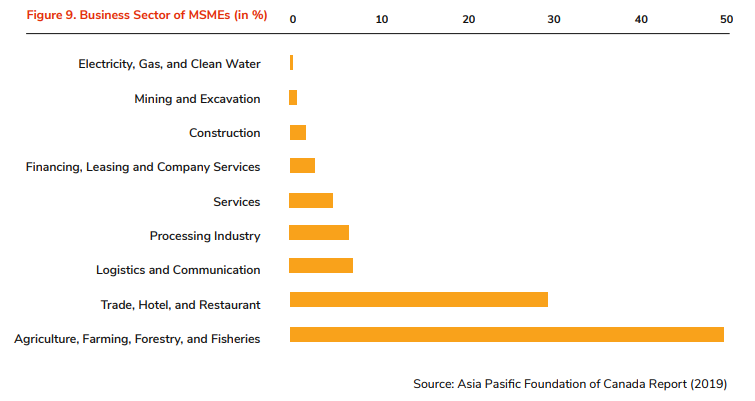
This could be the basic foundation for supporting SMEs in order to maintain economic stability. The mutualism synergy between digital startups and players in the agro sector seems to be getting stronger during the pandemic. Various digital platforms pivot or strengthen their online grocery business. Some of them are collaborating with farmers in various regions to supply fresh ingredients.
However, in a general view, the pandemic has shattered business arrangements on various scales from micro to large. SMEs also hit with the bitter impact of the crisis. According to the latest survey conducted by Telkomsel, there are several issues that have become increasingly caused by pandemic. The three things that complained the most were a decrease in buyers, a decrease in spending, and logistics.
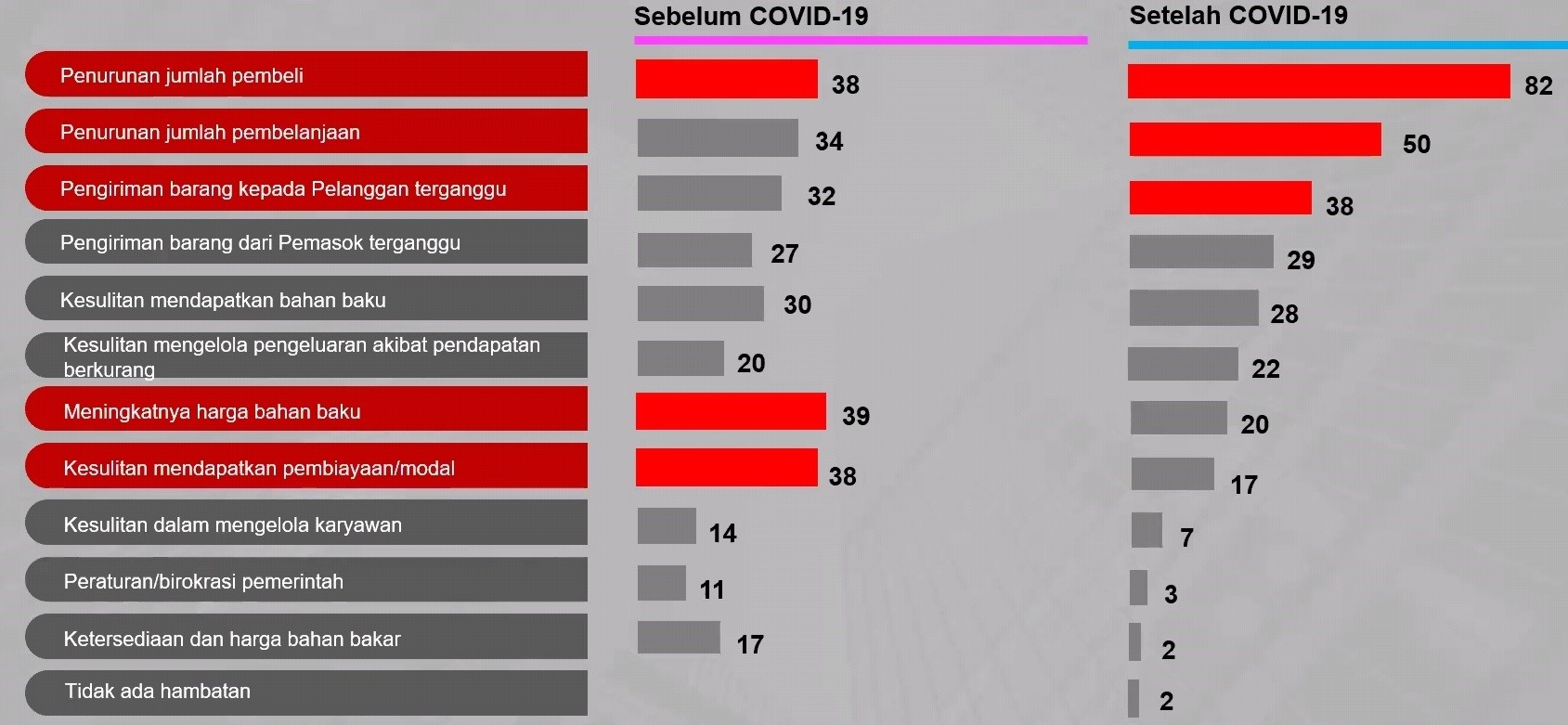
The latest issues arise can be the next breakthrough for innovators. The synergy between innovators and UKM players must continue to be fostered through the formation of a healthy ecosystem. These ideals can only be formed if every stakeholder involved has the vision to form a healthy business climate harmony. It is hoped that digital startups and SMEs will continue to be the engine towards a better national economy.
Happy MSME Day, let’s support domestic MSMEs together by continuing to innovate and be good consumers.
–
Original article is in Indonesian, translated by Kristin Siagian




